Special Report
Musicians Who Told Politicians "Don't Use My Song"

Published:
Last Updated:

Campaign songs promoting candidates have been in use since the days of George Washington. Today, rather than dedicated campaign tunes, politicians often use popular hits. But because the use might imply the musician’s support of the candidate, some have asked politicians to stop playing their songs.
In many cases, such as John F. Kennedy’s use of Frank Sinatra’s “High Hopes” in 1960, artists approve the use of their music as a means of endorsing or at least subtly signalling their approval of the candidate. Other times, politicians use pop songs without the musicians’ direct approval, often leading to anger and dismay on the side of the songwriter – especially in cases where the songwriter holds opposing political views.
This has been happening with not uncommon frequency going back to Bruce Springsteen’s disapproval of Ronald Reagan’s use of “Born in the U.S.A.” in 1984. And it has happened frequently since President Donald Trump began holding rallies some three years ago.
24/7 Wall St. has identified 35 instances of musicians who told politicians to stop using their music. Some emerged victorious while others had less success.
Click here to see the musicians who told politicians, “don’t use my song.”
Unfortunately for politicians within the Republican Party, the majority of complaints are made against them. It’s no secret that a large portion of the entertainment industry leans to the left and when right wing politicians use their work to promote policies the creators disagree with it can spell trouble. Musicians will often demand the politicians stop using their music and further use these opportunities to highlight their own, often opposing, political views by either publicly denouncing the politician in public or in the press.
Sometimes a public denouncement is the only way a musician can get a politician to abandon his or her music. Campaigns can procure blanket licenses from performing rights organizations such as American Society of Composers, Authors, and Publishers and Broadcast Music Inc., which work as the middlemen between copyright holders and those looking to license songs. And while performers may have no legal recourse, public attacks on the politicians using their music – such as Neil Young’s on stage denunciation of Trump over the latter’s legally cleared use of “Rockin’ in the Free World” – can lead to the song being dropped from rotation.
This is far from a guaranteed method. Elton John is on record in British newspaper “The Guardian” as asking that Trump refrain from playing his songs at rallies, though this has done little to dissuade the president. John McCain similarly continued using Van Halen’s “Right Now” after being asked to cease in 2008 – although vocalist Sammy Hagar broke with the rest of the band by appreciating the song’s usage.
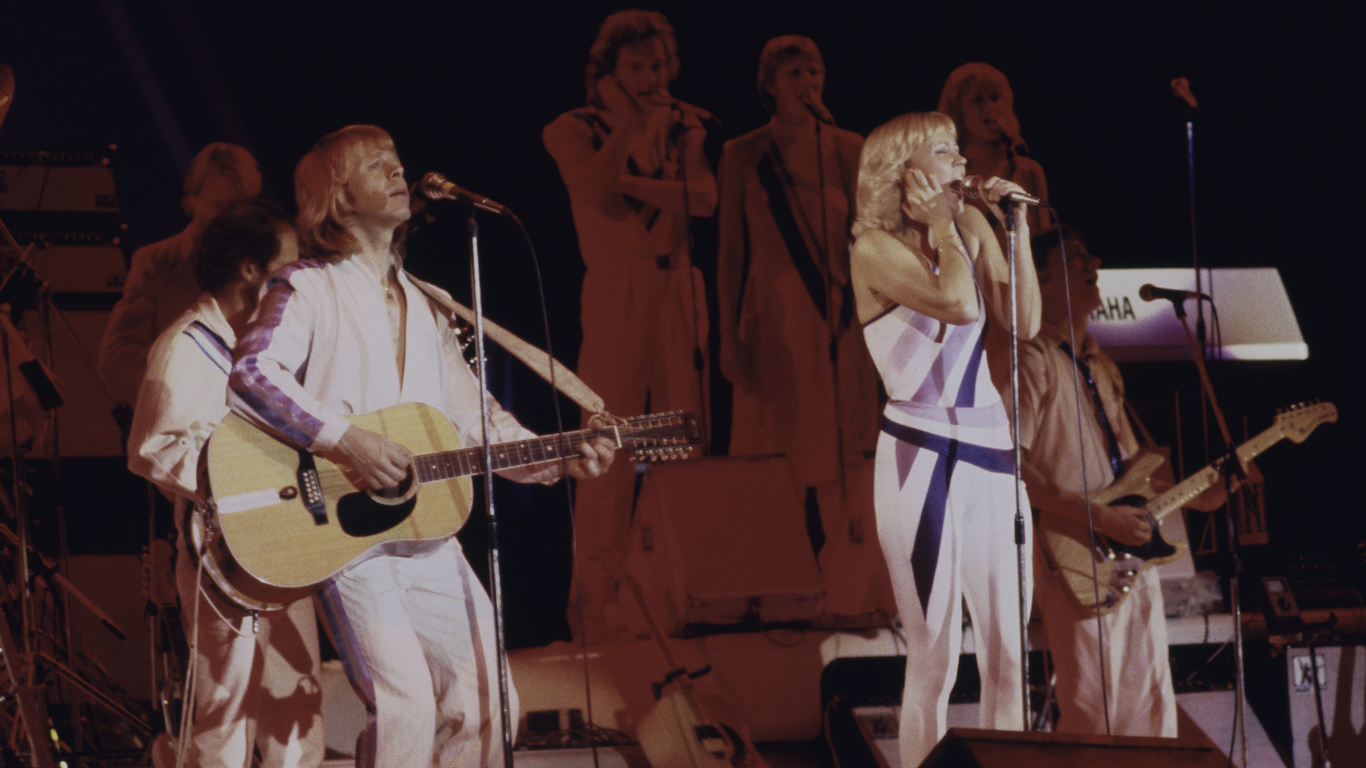
1. Abba
> Song: Take a Chance on Me
> Politician: John McCain
> Outcome:
McCain’s campaign dropped the song after the Swedish band sent them a cease-and-desist letter.
[in-text-ad]

2. Adele
> Song: Rolling in the Deep, Skyfall
> Politician: Donald Trump
> Outcome:
While Adele issued a statement that she did not directly grant Trump permission to play her songs, the campaign was undeterred, firing back that they have the legal rights to play them.
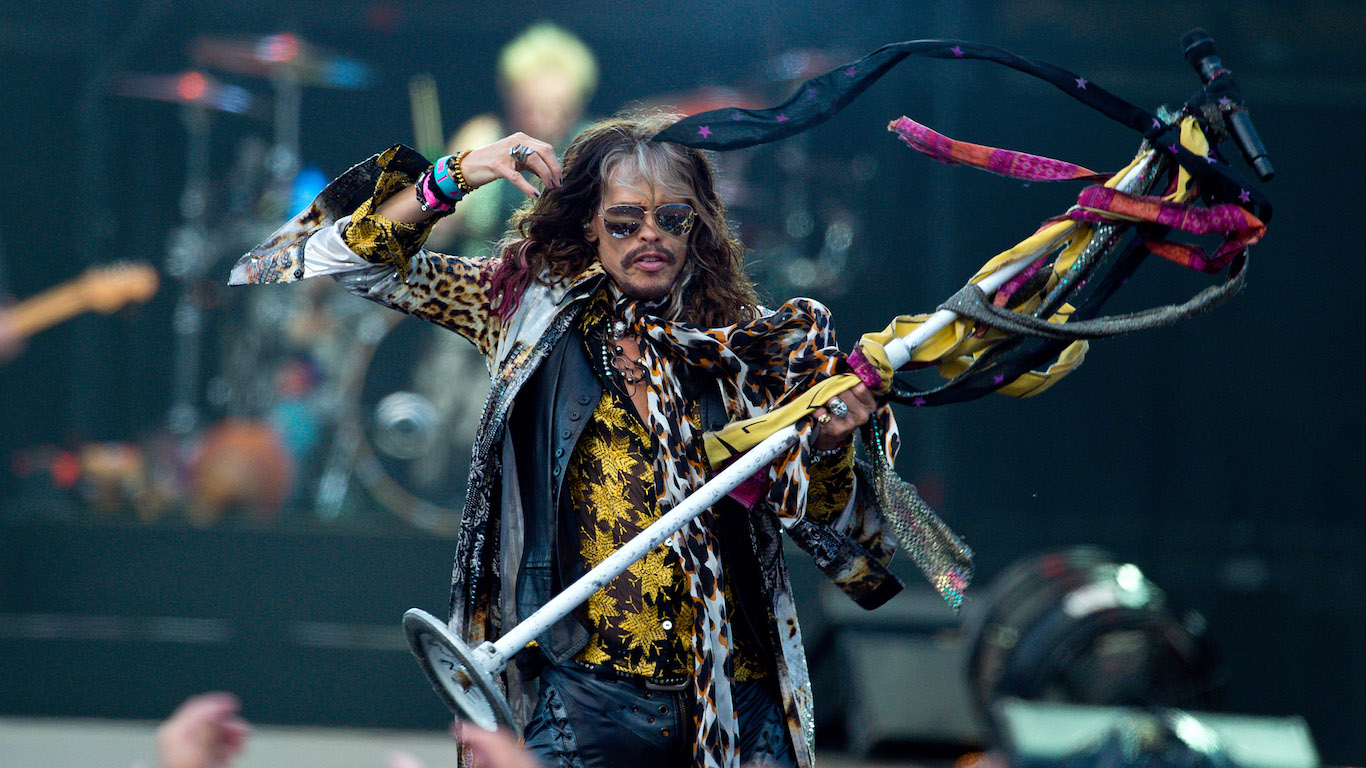
3. Aerosmith
> Song: Dream On
> Politician: Donald Trump
> Outcome:
Following a cease-and-desist letter, the licensing company pulled Aerosmith’s songs from the Trump campaign’s blanket license, forcing their removal from musical rotation.
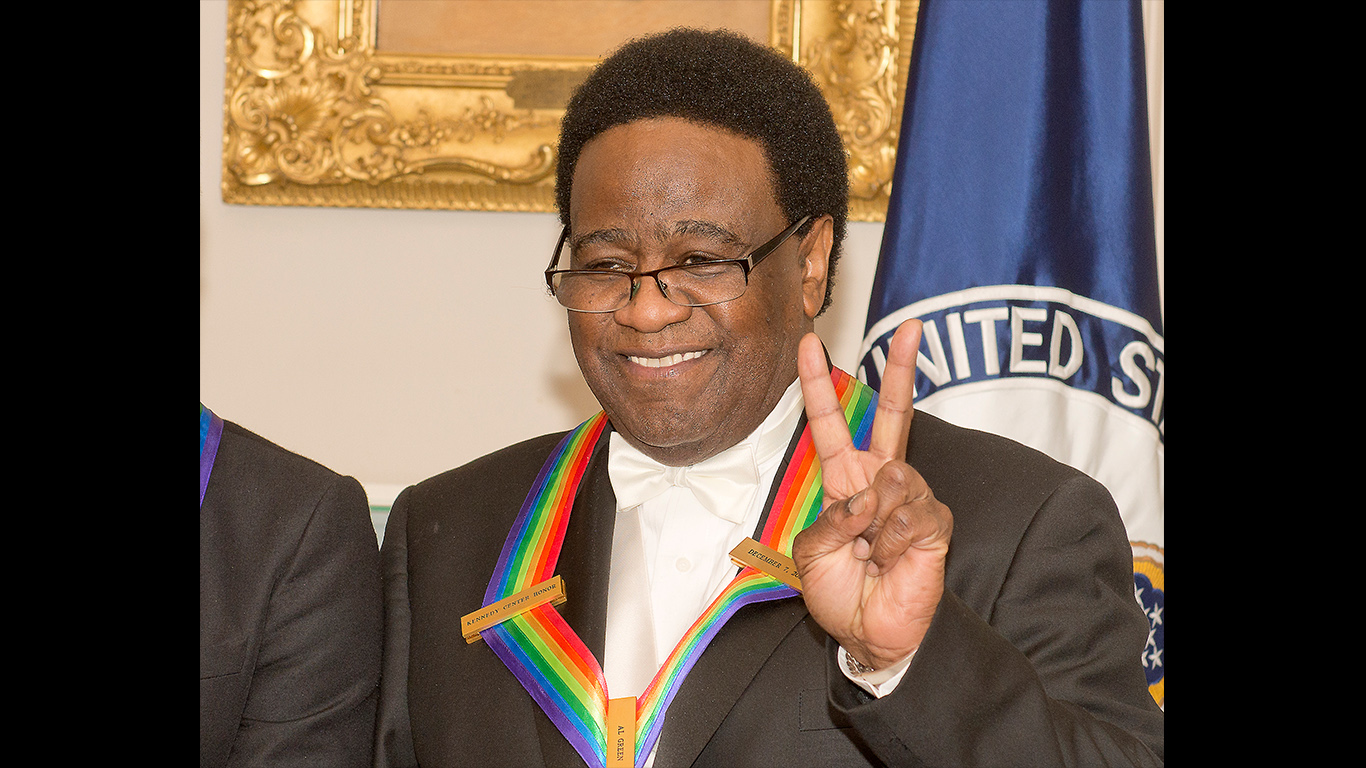
4. Al Green
> Song: Let’s Stay Together
> Politician: Mitt Romney
> Outcome:
Al Green’s camp issued a copyright infringement complaint against a 2008 Romney ad featuring Obama singing Green’s “Let’s Stay Together.” The video was briefly removed from YouTube as a result, but restored following Romney’s defense of “fair use.”
[in-text-ad-2]
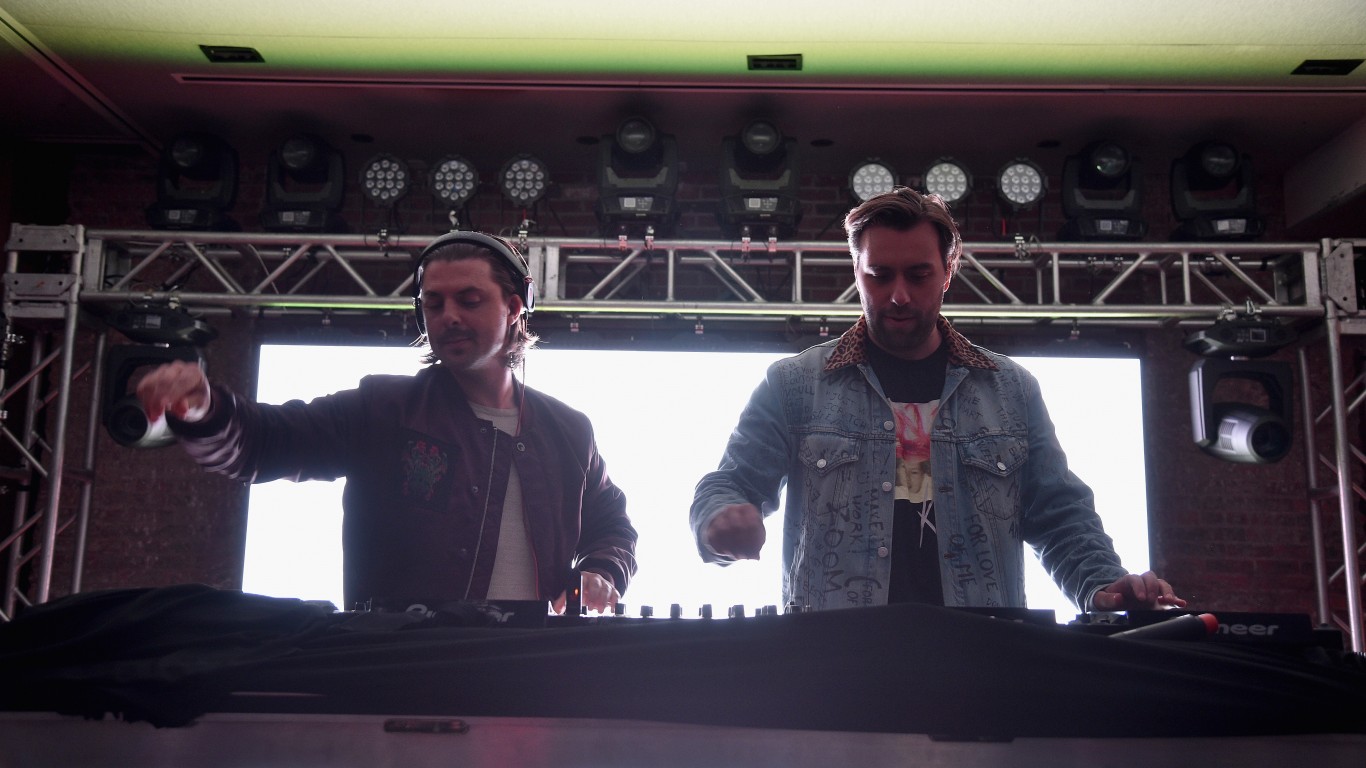
5. Axwell & Ingrosso
> Song: Something New
> Politician: Marco Rubio
> Outcome:
Rubio was forced to abandon the Swedish DJs “Something New” following a cease-and-desist letter. The group stated that they did not wish “to be affiliated with a particular party during the […] presidential race.”
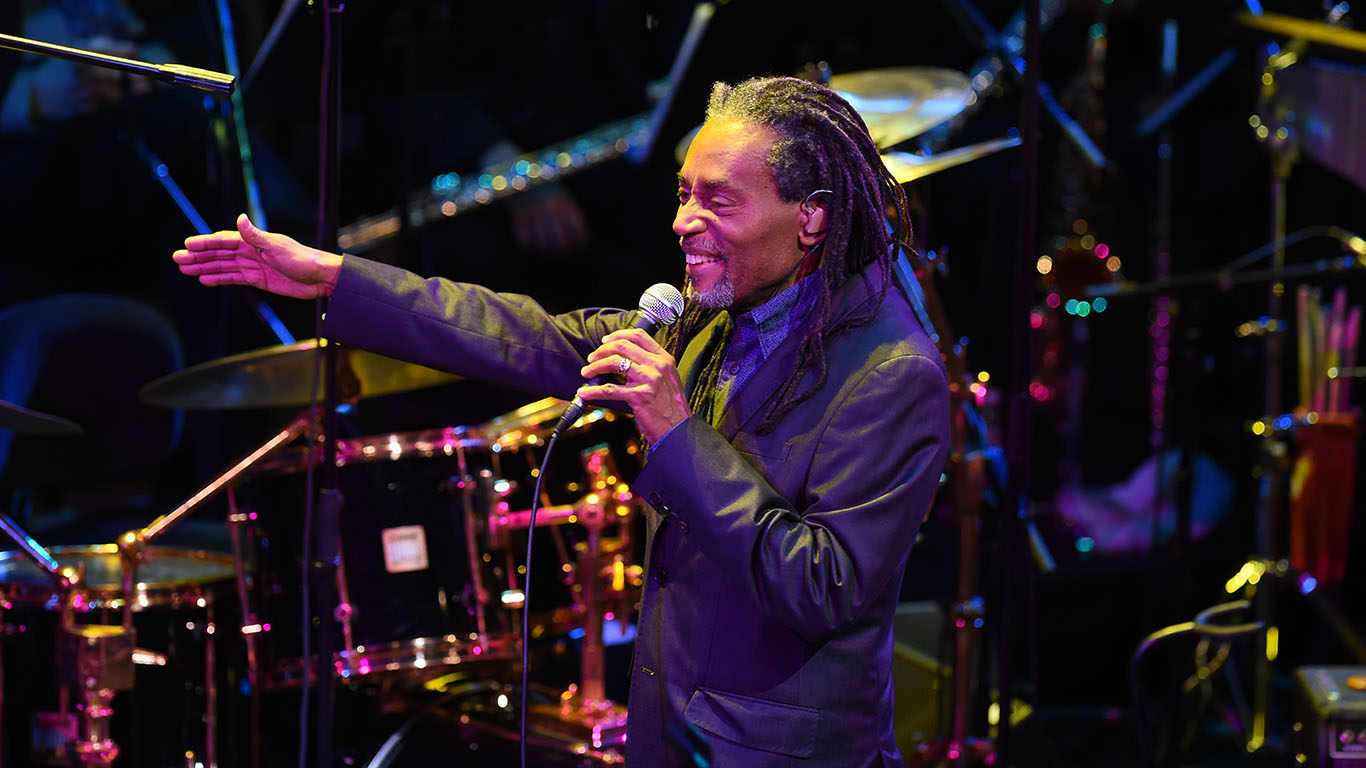
6. Bobby McFerrin
> Song: Don’t Worry, Be Happy
> Politician: George H. W. Bush
> Outcome:
Vice President George H. W. Bush was asked in 1988 to stop using Bobby McFerrin’s infectious “Don’t Worry, Be Happy” as his campaign theme song. Bush invited McFerrin to dinner in order to smooth things over but was rebuffed.
[in-text-ad]

7. Bon Jovi
> Song: Who Says You Can’t Go Home
> Politician: John McCain
> Outcome:
While Bon Jovi issued a disapproving statement over the McCain camp’s use of their song, no legal action was taken and usage continued unabated.
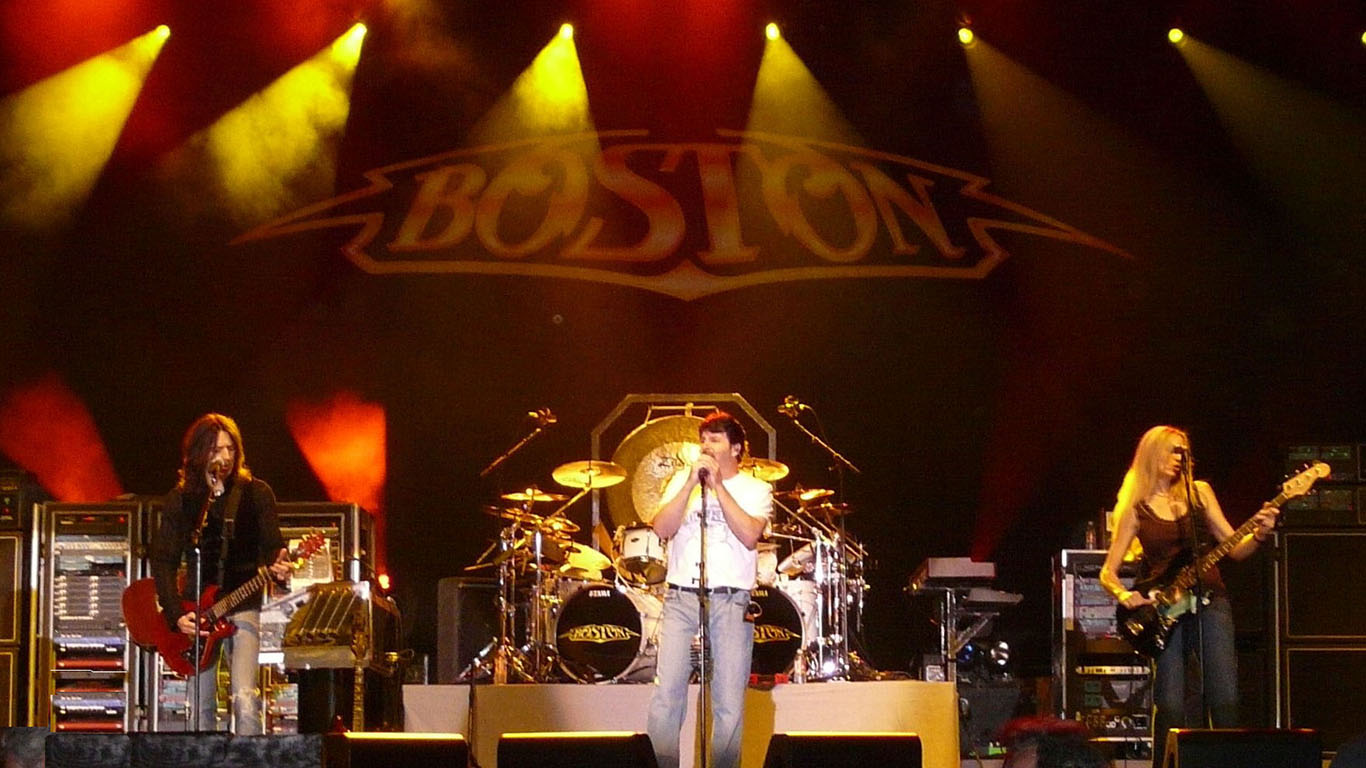
8. Boston
> Song: More Than a Feeling
> Politician: Mike Huckabee
> Outcome:
In response to Huckabee’s playing “More Than a Feeling” on bass guitar at 2008 campaign events, Boston frontman Tom Scholz wrote a rather scathing letter, stating that “Boston has never endorsed a political candidate, and with all due respect, would not start by endorsing a candidate who is the polar opposite of most everything Boston stands for.”

9. Bruce Springsteen
> Song: Born in the U.S.A.
> Politician: Ronald Reagan, Bob Dole, Pat Buchanan
> Outcome:
An adviser to President Reagan asked The Boss if he could use “Born in the U.S.A.” during his re-election campaign in 1984. Springsteen turned him down. This episode is seen as the start of Springsteen’s progressive awakening, and since then, he has become an outspoken liberal. In later years, Dole and Buchanan were similarly turned down.
[in-text-ad-2]

10. Talking Heads
> Song: Road to Nowhere
> Politician: Charlie Crist
> Outcome:
Florida senate candidate Charlie Crist used the Talking Heads song “Road to Nowhere” in a 2010 attack video against rival Marco Rubio. Talking Heads lead singer David Byrne sued Crist over use of the song and won. Crist agreed to pay an undisclosed sum and issued an apology on YouTube.
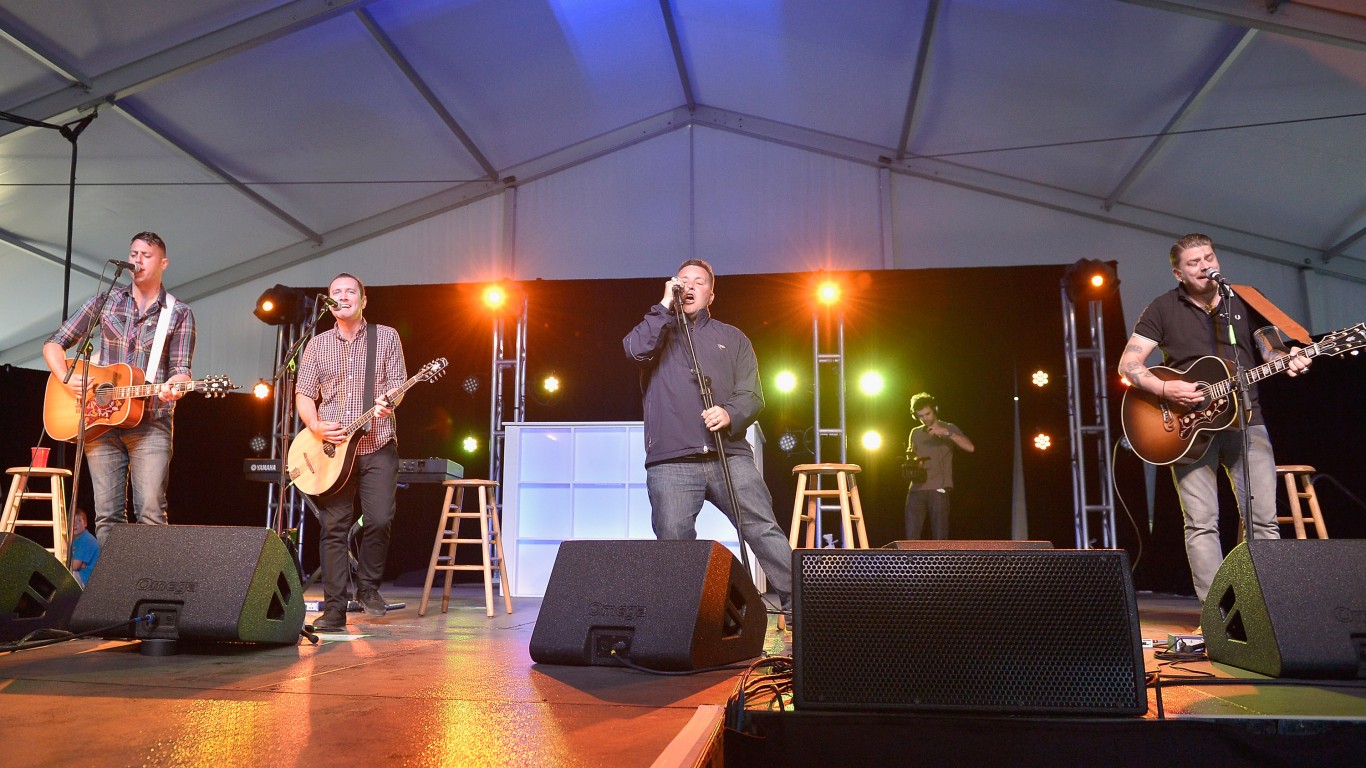
11. Dropkick Murphys
> Song: I’m Shipping Up to Boston
> Politician: Scott Walker
> Outcome:
When Wisconsin Gov. Scott Walker strode out to the strains of “I’m Shipping Up to Boston” at an event for presidential aspirants in Iowa, the punk band Dropkick Murphys was not happy. The group fired off a tweet asking Walker to not use their music. They also added “…we literally hate you!” The band said on Facebook that it was not looking to sue anyone over the issue; it just didn’t want to be associated with “certain events or people.”
[in-text-ad]
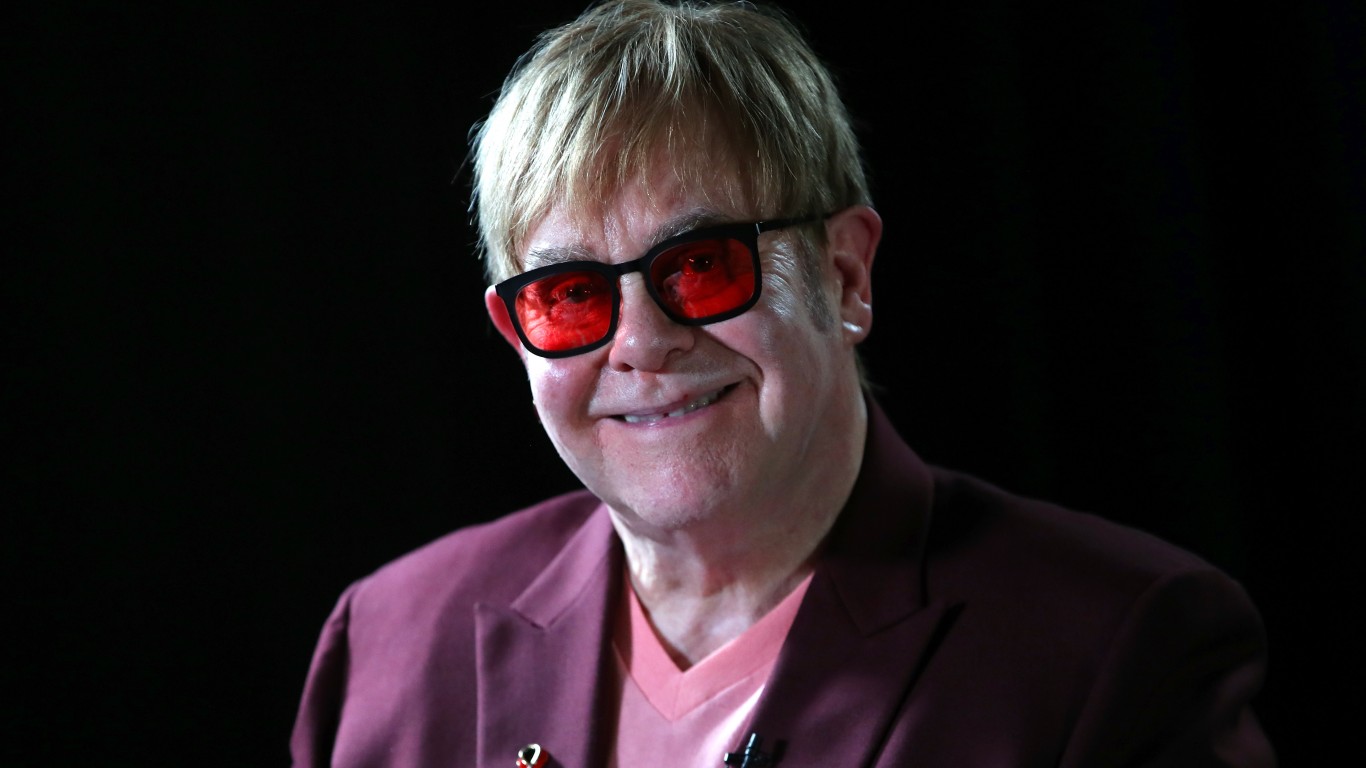
12. Elton John
> Song: Rocket Man, Tiny Dancer
> Politician: Donald Trump
> Outcome:
President Trump admires Elton John. He even referenced one of the British rocker’s songs by disparagingly calling North Korean leader Kim Jong-un “Rocket Man.” John has known the president for decades, but he turned down Trump’s invitation to perform at his inauguration. John also had asked that his songs not be used during the 2016 presidential campaign but Trump continues to use songs such as “Tiny Dancer” at political rallies.

13. Explosions in the Sky
> Song: Your Hand in Mine
> Politician: Ted Cruz
> Outcome:
The Texas rockers were able to force Sen. Ted Cruz to take down a campaign ad featuring their music in 2016 because of copyright issues.
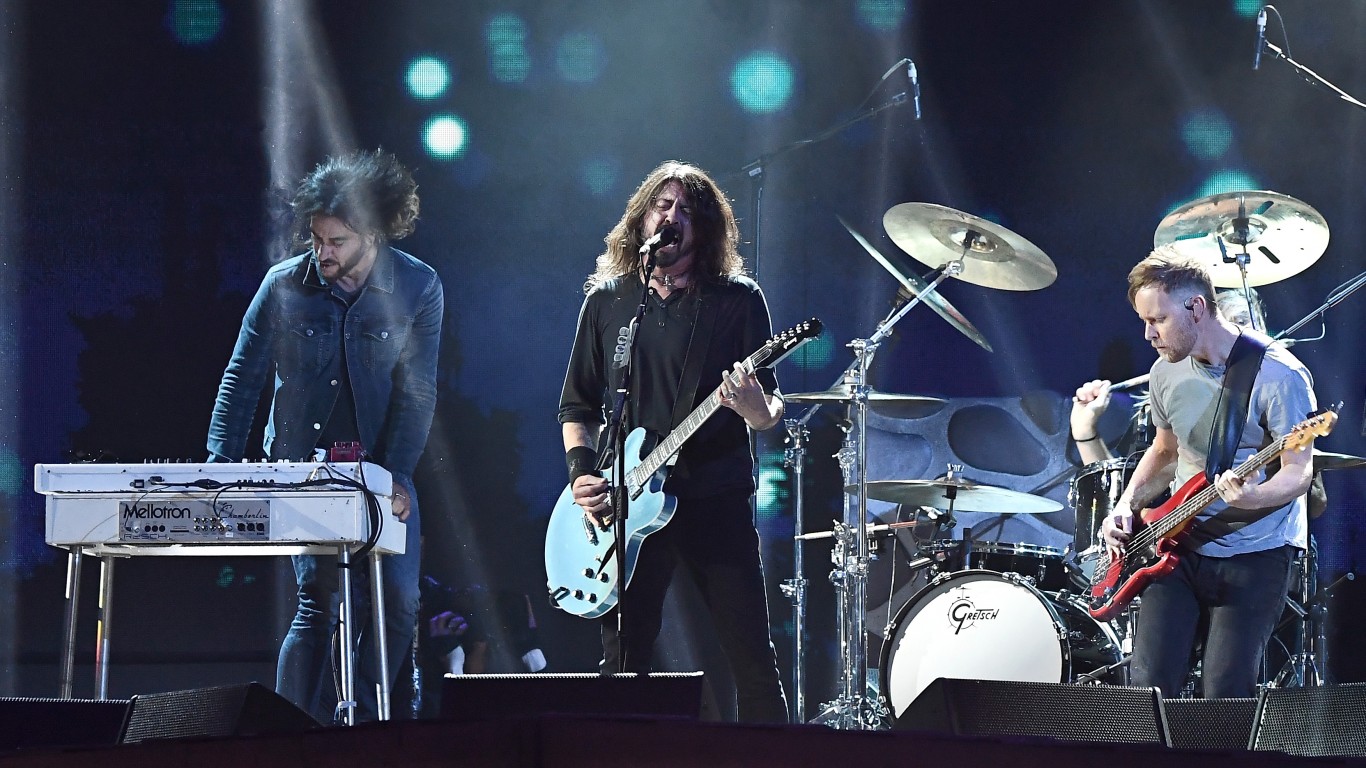
14. Foo Fighters
> Song: My Hero
> Politician: John McCain
> Outcome:
Foo Fighters’ Dave Grohl, who was a supporter of Barack Obama during the 2008 presidential campaign against McCain, asked that the Republican stop using the group’s song “My Hero.” The McCain campaign continued to use the song, saying that although it respects copyright, it had the legal rights to use the song.
[in-text-ad-2]
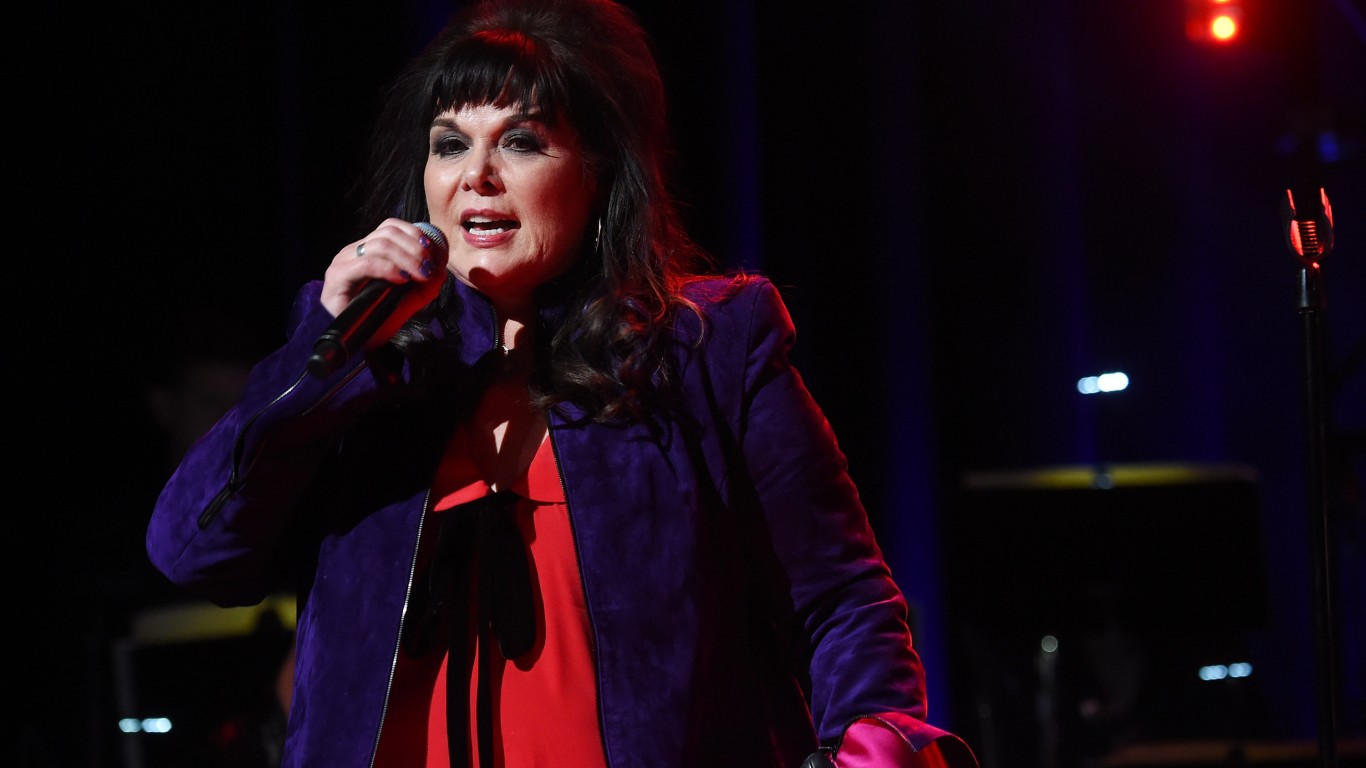
15. Heart
> Song: Barracuda
> Politician: Sarah Palin
> Outcome:
“Barracuda” was one of the biggest hits of rock group Heart, and Republican vice presidential candidate Sarah Palin — whose nickname was “Sarah Barracuda” in high school — used the song at campaign rallies in 2008. She continued to do so, claiming she had the right to use the song because of a blanket license from the American Society of Composers, Authors, and Publishers.
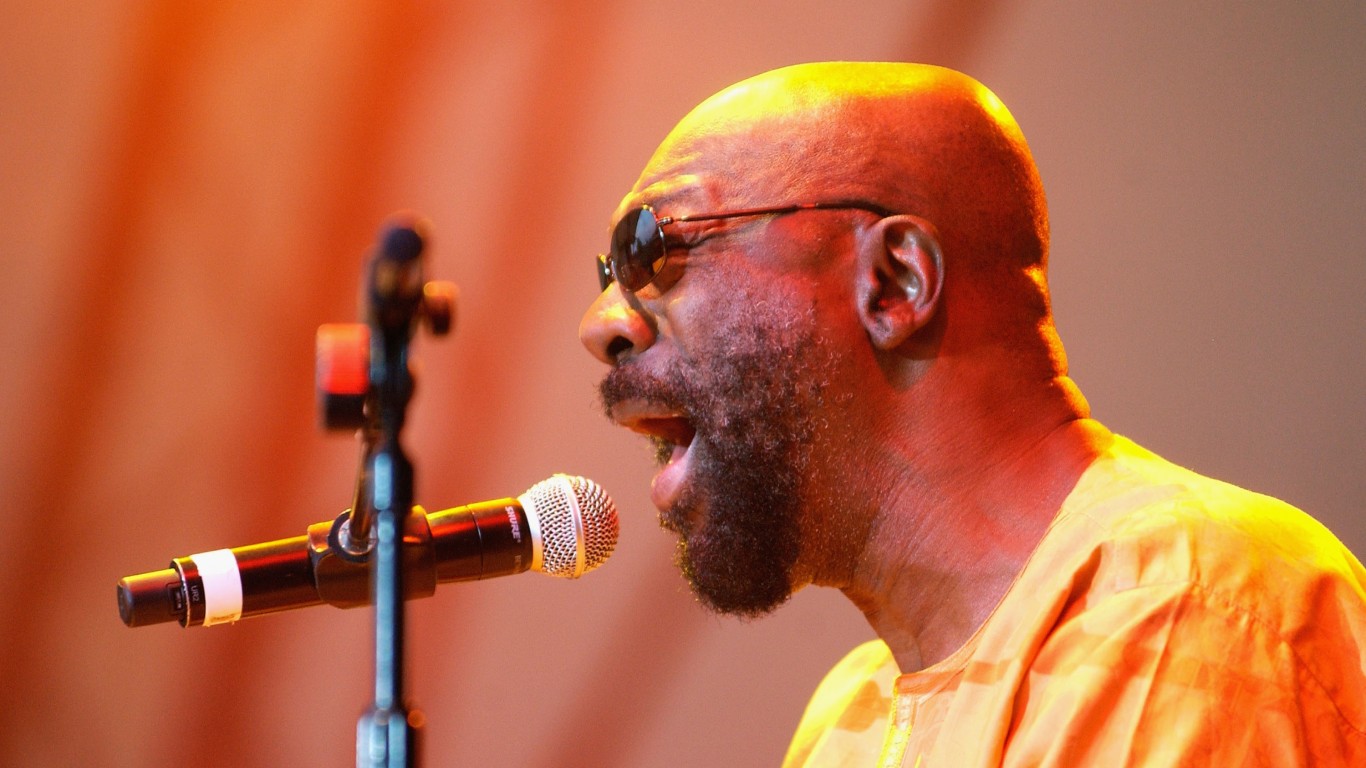
16. Isaac Hayes
> Song: Soul Man
> Politician: Bob Dole
> Outcome:
The campaign of Bob Dole, the Republican candidate for president in 1996, reworked the 1967 Sam & Dave hit “Soul Man,” that was co-written by Isaac Hayes and David Porter, to “I’m a Dole man.” But the campaign did not get the rights to the song. The rights were held by Rondor Music, which threatened to sue the Dole campaign for $10,000 every time it used the song. The campaign stopped using the song.
[in-text-ad]

17. Jackson Browne
> Song: Running On Empty
> Politician: John McCain
> Outcome:
The 2008 presidential campaign of McCain used one of Browne’s iconic songs to mock Democratic candidate Barack Obama about his statements on gasoline conservation. Browne filed suit against the McCain campaign and won an undisclosed settlement and a public apology from the Republican senator.
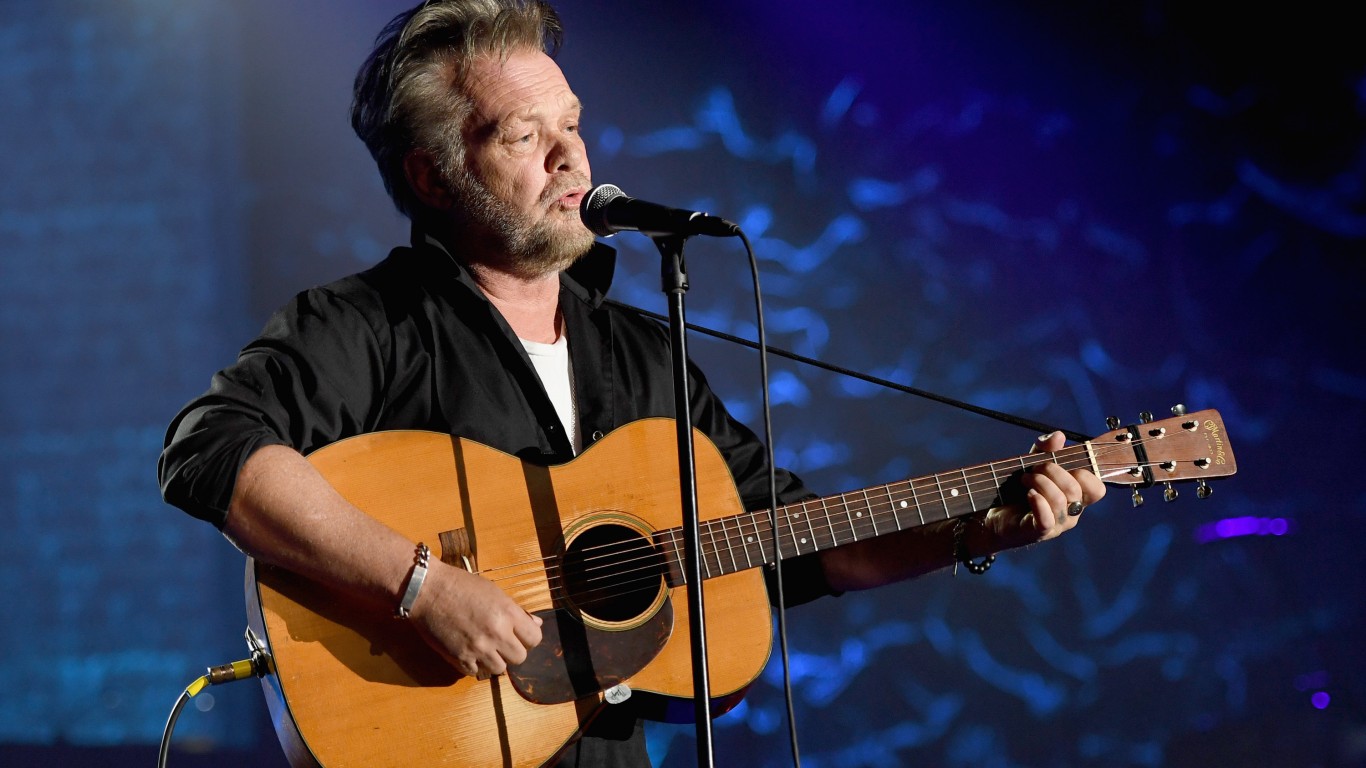
18. John Mellencamp
> Song: Pink Houses, R.O.C.K. in the U.S.A.
> Politician: Ronald Reagan, George W. Bush, John McCain
> Outcome:
The heartland rocker rejected three Republican candidates from using his songs. The 1984 Reagan presidential campaign wanted to use “Pink Houses,” and Mellencamp was opposed. He also asked President George W. Bush not to include “R.O.C.K. in the U.S.A.” in 2000. McCain used the Mellencamp tunes “Our Country” and “Pink Houses” during the 2008 presidential race until the rocker requested that McCain stop.
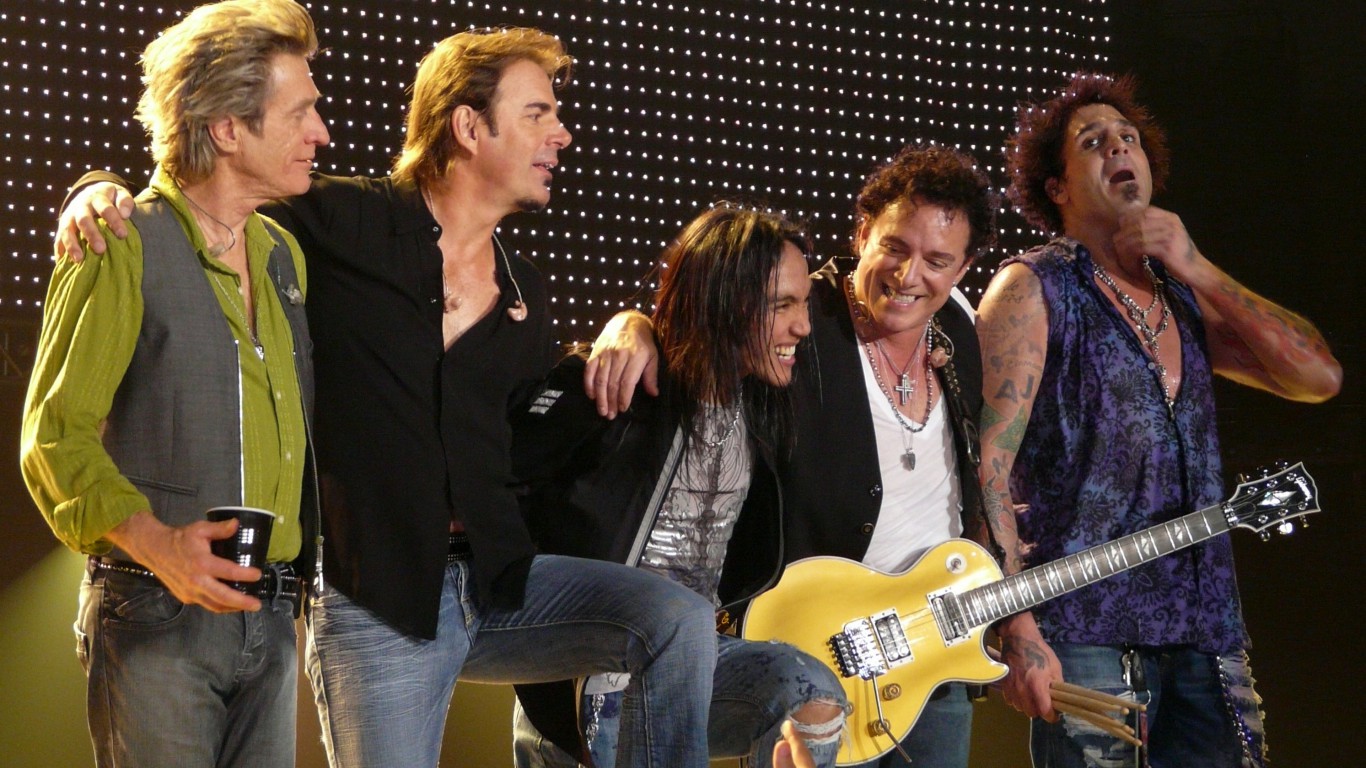
19. Journey
> Song: Don’t Stop Believin’
> Politician: Newt Gingrich
> Outcome:
Newt Gingrich used Journey’s anthem “Don’t Stop Believin'” during political events in 2011. Journey never believed in Gingrich and demanded that he not use the song. He continued to use it until he dropped out of the presidential race the following year.
[in-text-ad-2]
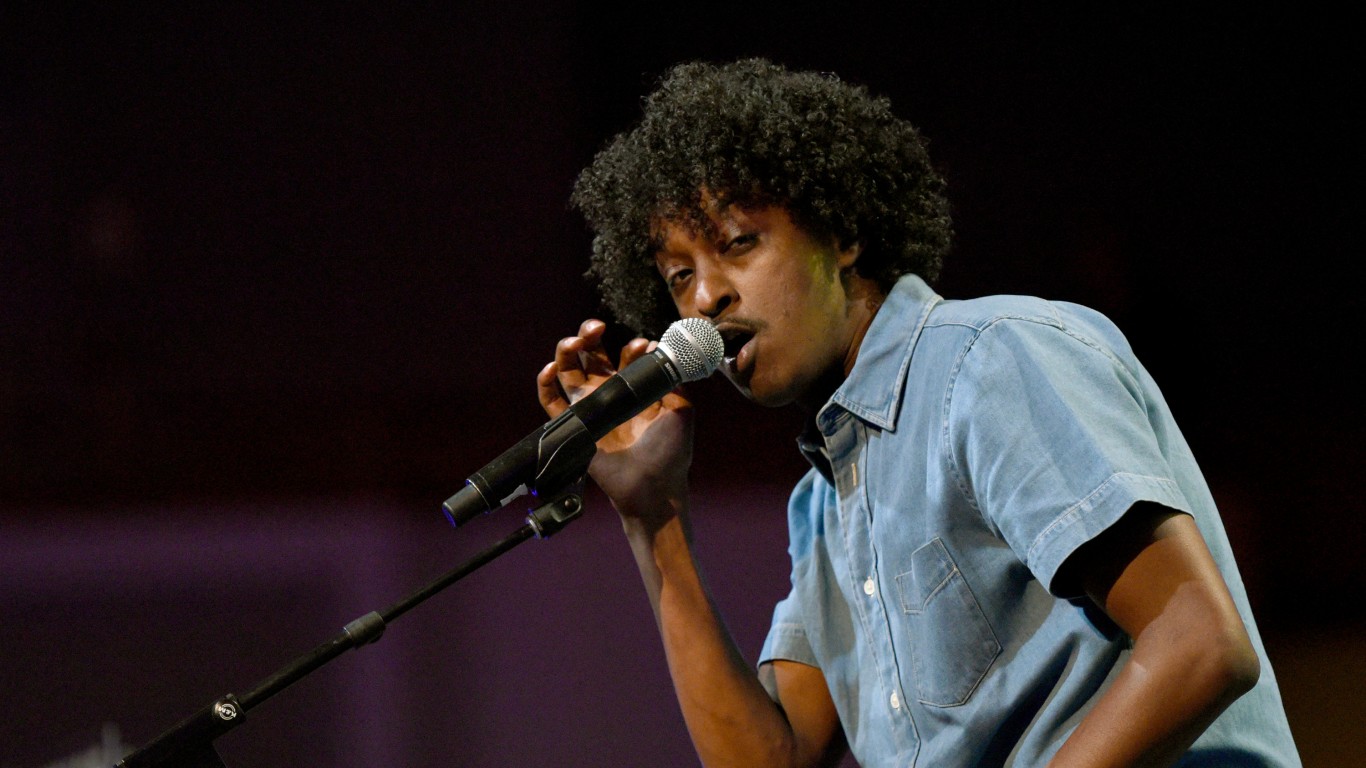
20. K’Naan
> Song: Wavin’ Flag
> Politician: Mitt Romney
> Outcome:
The Mitt Romney campaign was threatened with legal action from representatives of the Somali-Canadian artist during the 2012 presidential race. Reps for the Republican presidential candidate said they had permission to use the song because of licenses bought from ASCAP and BMI, however, the campaign stopped using “Wavin’ Flag” in deference to K’Naan’s views.
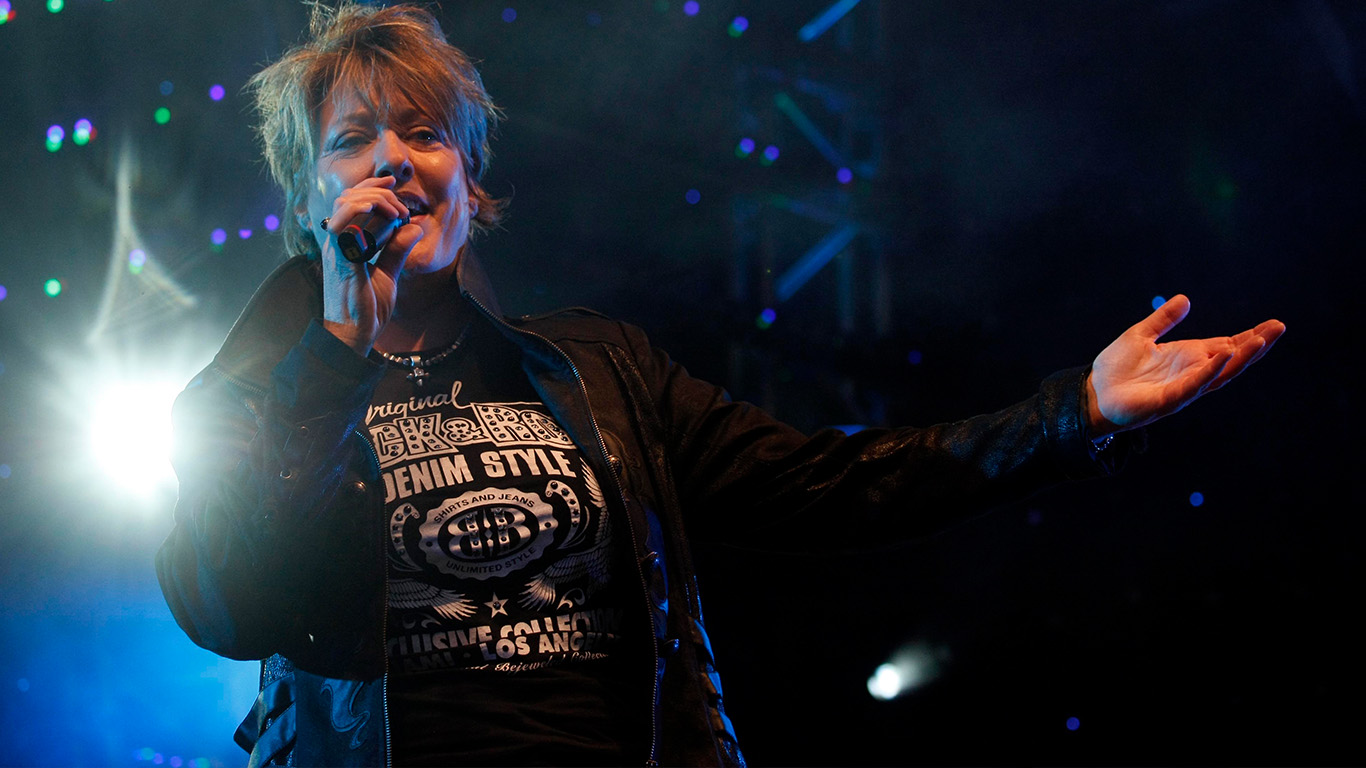
21. Katrina and the Waves
> Song: Walking on Sunshine
> Politician: Michele Bachmann
> Outcome:
Katrina Leskanich, lead singer of the British-American band, asked the Minnesota congresswoman in 2011 to refrain from using the group’s biggest hit at campaign rallies and also threatened legal action. But Bachmann continued to use the song.
[in-text-ad]

22. MGMT
> Song: Kids
> Politician: Nicolas Sarkozy
> Outcome:
It’s not only American politicians who run afoul of artists when using their music without their permission. French President Nicolas Sarkozy’s UMP party used the indie band’s “Kids” song without permission. UMP admitted its mistake and eventually paid the band about $40,000, which MGMT donated to an artists’ rights group.
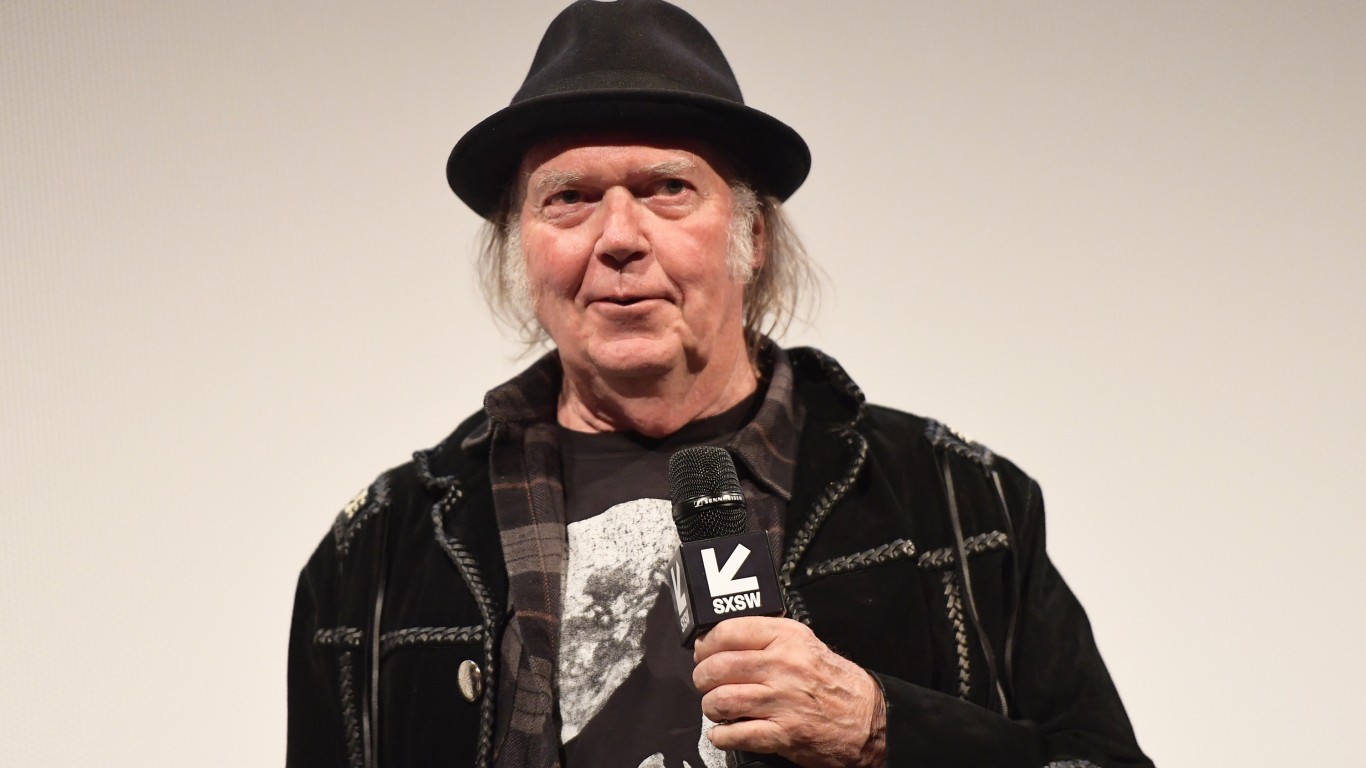
23. Neil Young
> Song: Rockin’ in the Free World
> Politician: Donald Trump
> Outcome:
Trump used Neil Young’s “Rockin’ in the Free World” when he announced he was running for president in 2015. Young, a Canadian-born musician who backed Bernie Sanders, objected. Trump reps said they had permission to use the song, and Young eventually relented, saying “Once the music goes out, everybody can use it.”
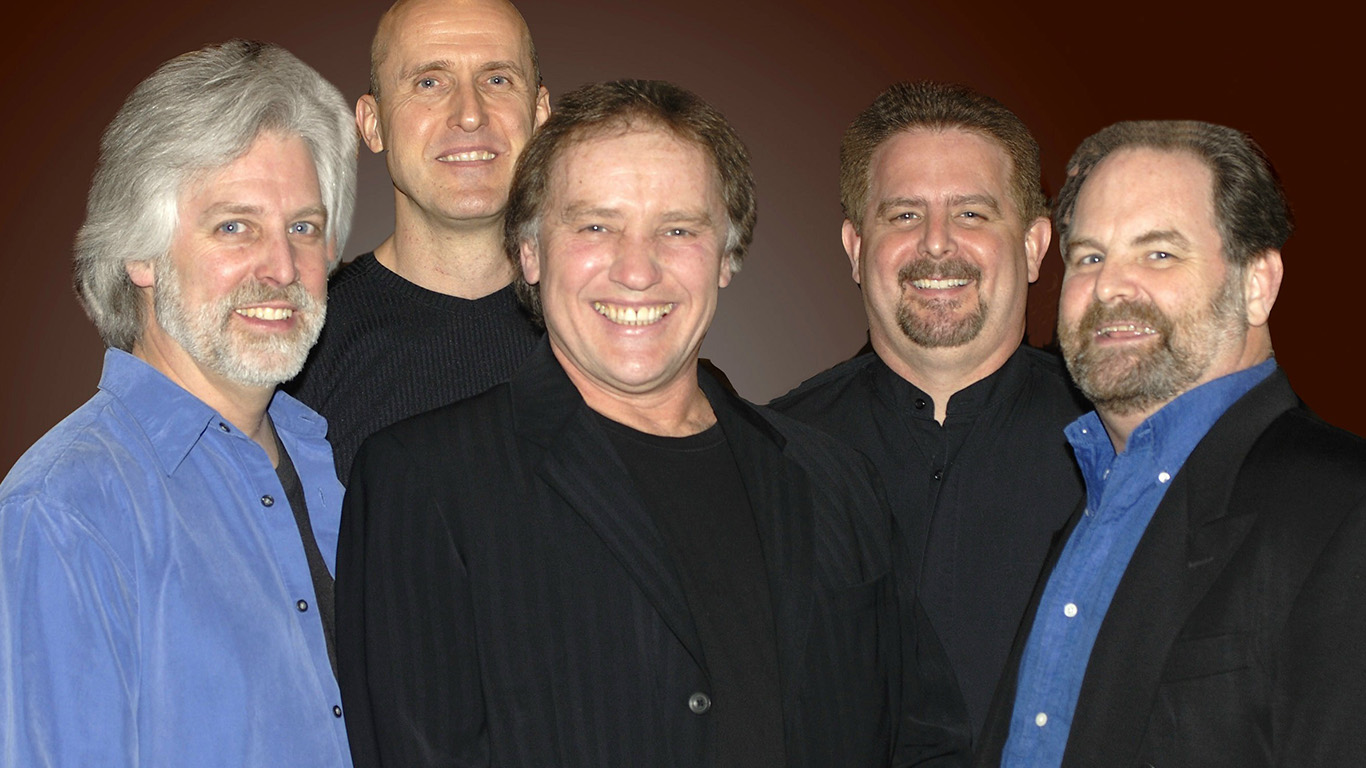
24. Orleans
> Song: Still the One
> Politician: George W. Bush, John McCain
> Outcome:
During his 2004 re-election campaign, Bush drew the ire of John Hall, who co-wrote the soft-rockers’ 1976 hit. Hall, a former Democratic legislator from New York state, said the Bush campaign never got permission to use the upbeat pop tune. The Bush campaign stopped using the song. McCain, who also used the song, ignored cease-and-desist letters in 2008.
[in-text-ad-2]
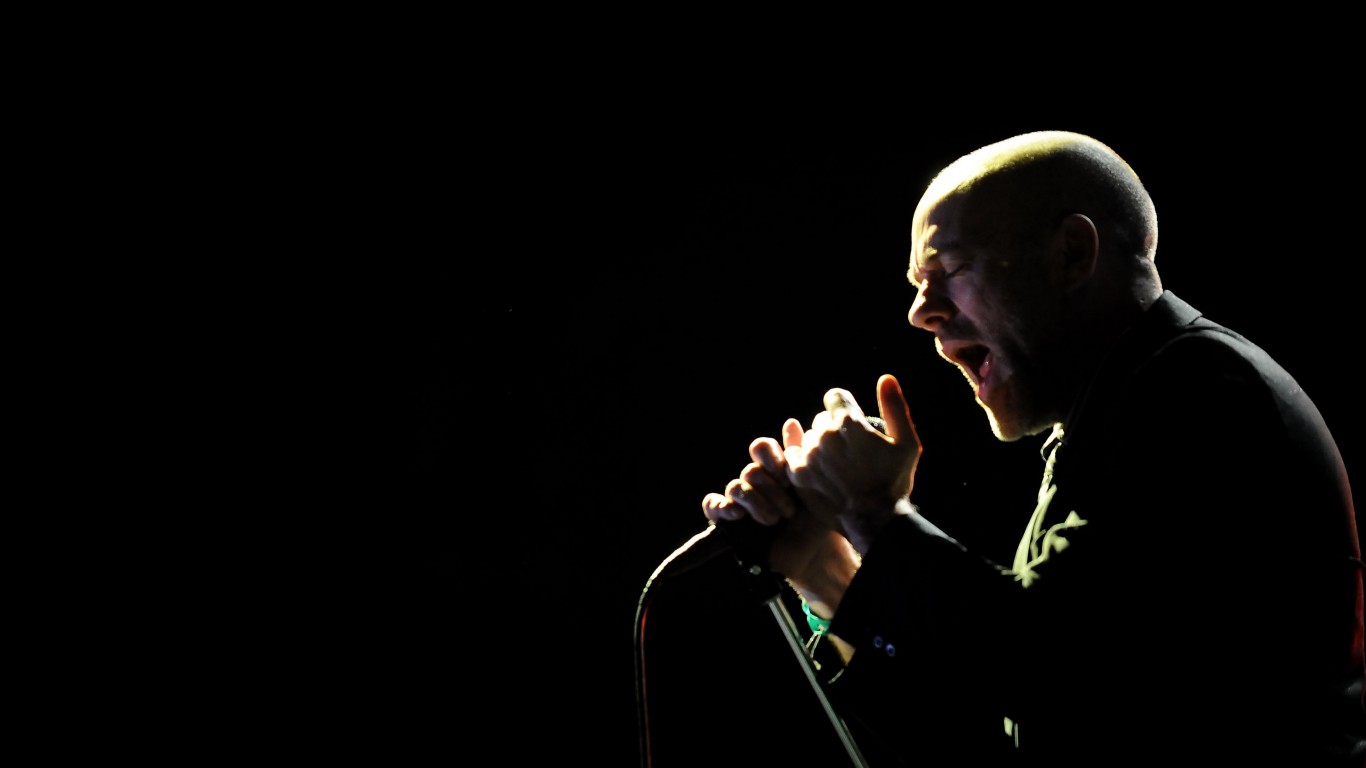
25. R.E.M.
> Song: It’s the End of the World as We Know It
> Politician: Donald Trump
> Outcome:
The Georgia rockers did not feel fine about Trump using their stream-of-consciousness take on the news on the campaign trail in 2015. Lead singer Michael Stipe launched an expletive-laced reaction to the song being used as Trump walked out at a Tea Party event, and the band asked then-candidate Trump to not use it. Apparently, R.E.M. never pursued legal recourse. In a Facebook post, the band said it did not “authorize or condone the use of our music.” Use of the song was not an ongoing issue.
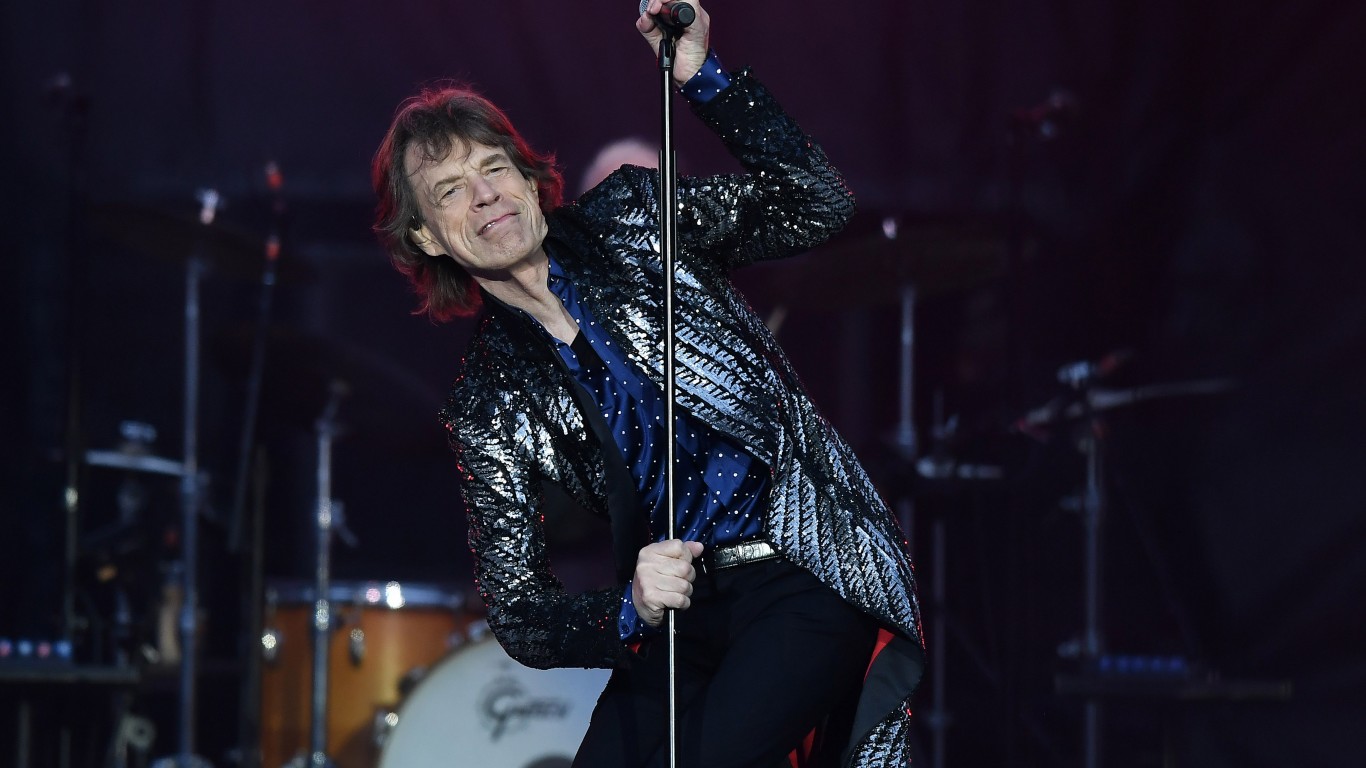
26. Rolling Stones
> Song: You Can’t Always Get What You Want, Sympathy for the Devil, Brown Sugar
> Politician: Donald Trump
> Outcome:
While The Stones repeatedly asked Trump not to play their songs, they eventually accepted that at some point there was no way to stop him as he held the legal rights to do so.
[in-text-ad]

27. Rush
> Song: Tom Sawyer, The Spirit of Radio
> Politician: Rand Paul
> Outcome:
The Canadian rock band Rush asked 2010 Senate nominee Rand Paul to stop playing their music at rallies. Though some have interpreted early band lyrics as having libertarian leanings, Rush’s attorney stated it was “not a political issue” but “a copyright issue.”
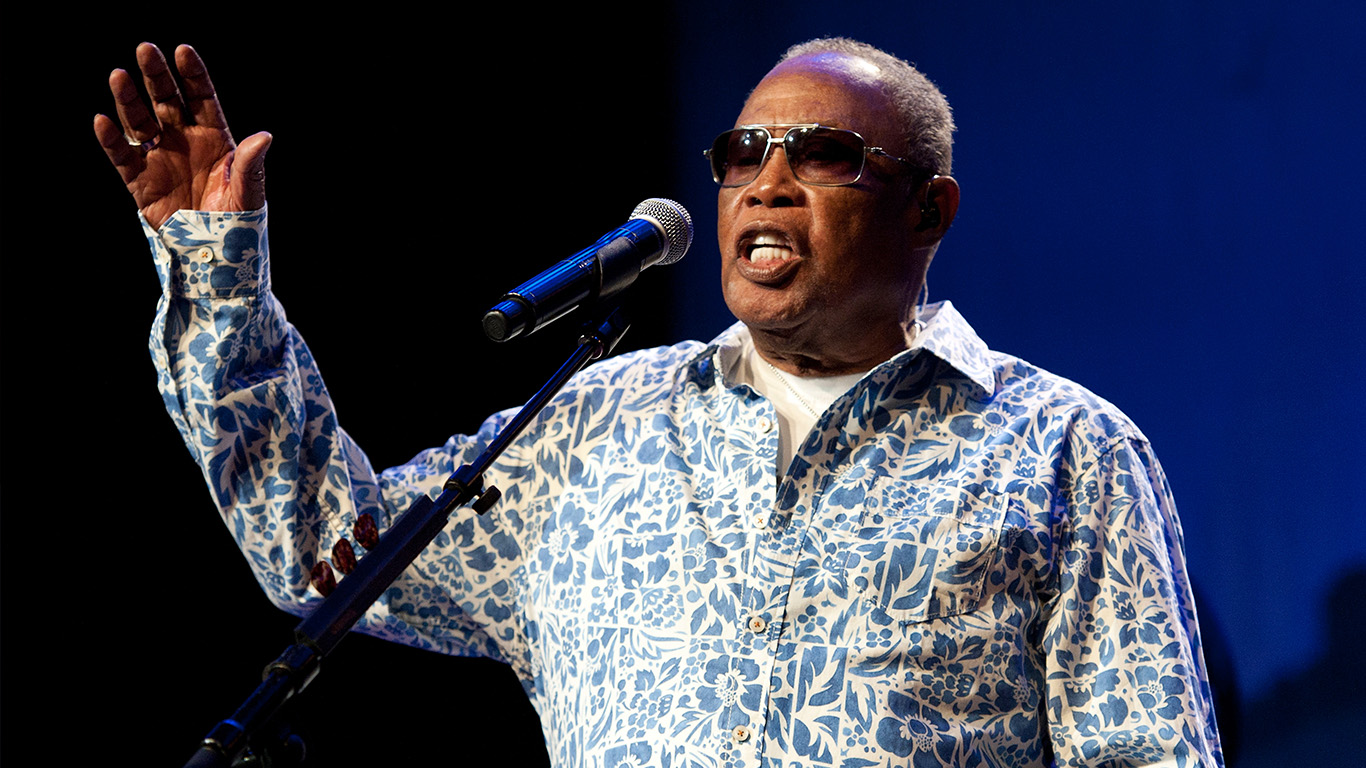
28. Sam & Dave
> Song: Hold On I’m Coming
> Politician: Barack Obama
> Outcome:
Democrats have been asked to stop playing music as well. In 2008, Sam Moore of Sam & Dave asked Barack Obama to refrain from playing his “Hold On I’m Coming” over fears it would look like the singer had endorsed the candidate. The Obama campaign agreed to stop.

29. Silversun Pickups
> Song: Panic Switch
> Politician: Mitt Romney
> Outcome:
The Silversun Pickups’ song “Panic Switch” was reportedly played once as a Romney rally was being set up, yet this was enough to push the band to send a cease-and-desist letter. The Romney campaign maintained that they had the rights to play the song, but despite this they didn’t play it again.
[in-text-ad-2]

30. Sting
> Song: Brand New Day
> Politician: Al Gore, George W. Bush
> Outcome:
Both Bush and Gore hoped to use Sting’s “Brand New Day” as their campaign theme song in 2000 but both were turned down by the English rocker.
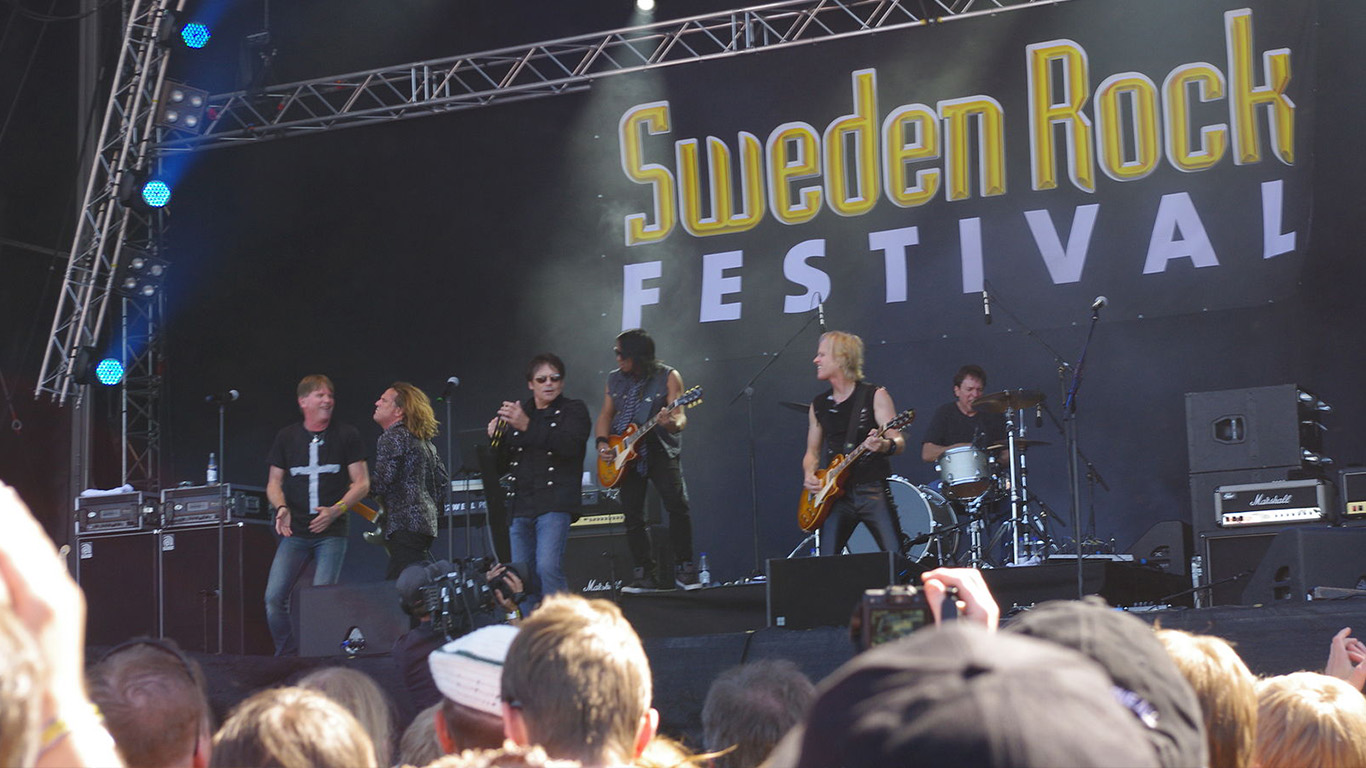
31. Survivor
> Song: Eye of the Tiger
> Politician: Mike Huckabee, Newt Gingrich
> Outcome:
The Huckabee campaign was forced to pay a $25,000 settlement for unlicensed use of Survivor’s “Eye of the Tiger,” best known as the theme song from “Rocky III.” Newt Gingrich also paid a settlement over use of the song in 2012, though the amount was not disclosed.
[in-text-ad]
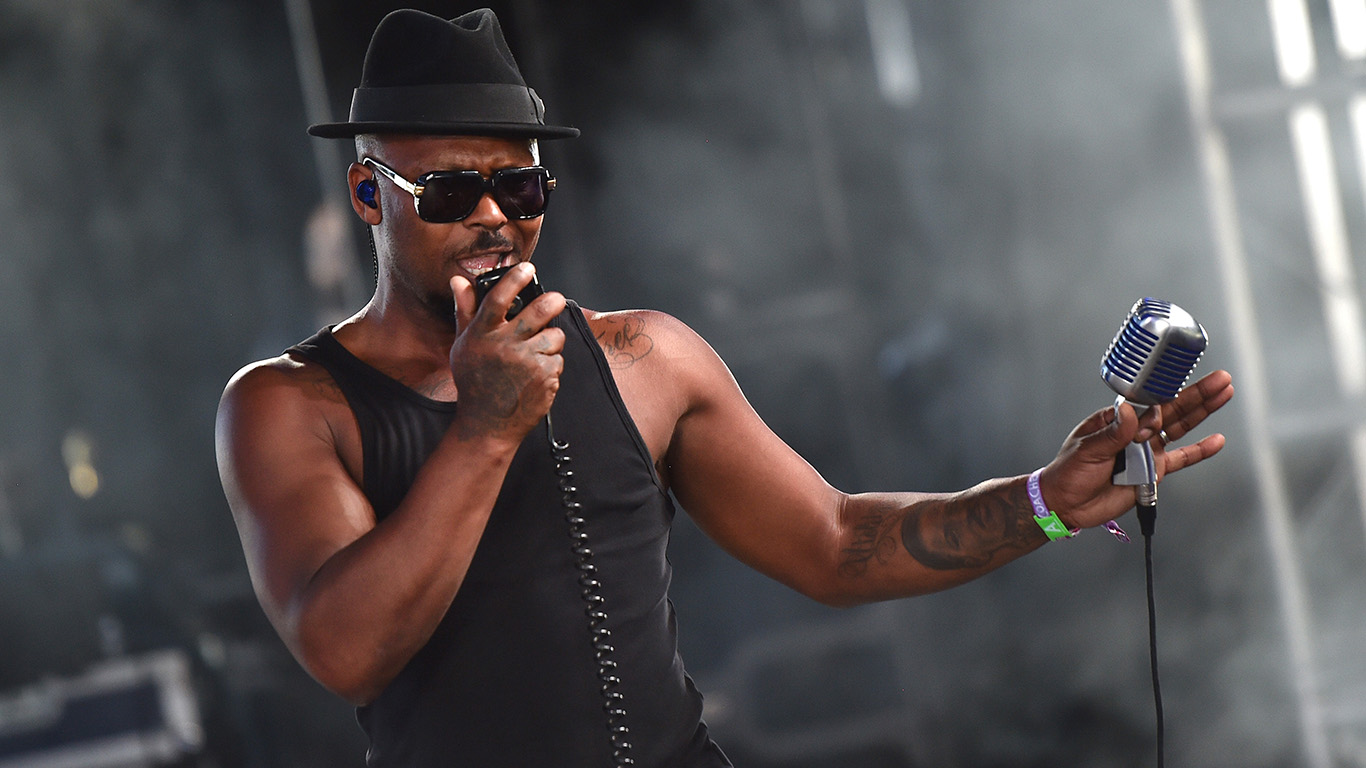
32. The Heavy
> Song: How You Like Me Now
> Politician: Newt Gingrich
> Outcome:
Gingrich ceased using the song at rallies after receiving a cease-and-desist letter from the British indie-rock band’s music publisher.

33. Tom Petty
> Song: I Won’t Back Down, American Girl
> Politician: George W. Bush, John McCain, Michele Bachmann
> Outcome:
While Tom Petty was able to prevent both Bush and McCain from using his songs, presidential candidate Michele Bachmann was less willing to back down, playing Petty’s hit “American Girl” even after receiving a cease-and-desist letter.
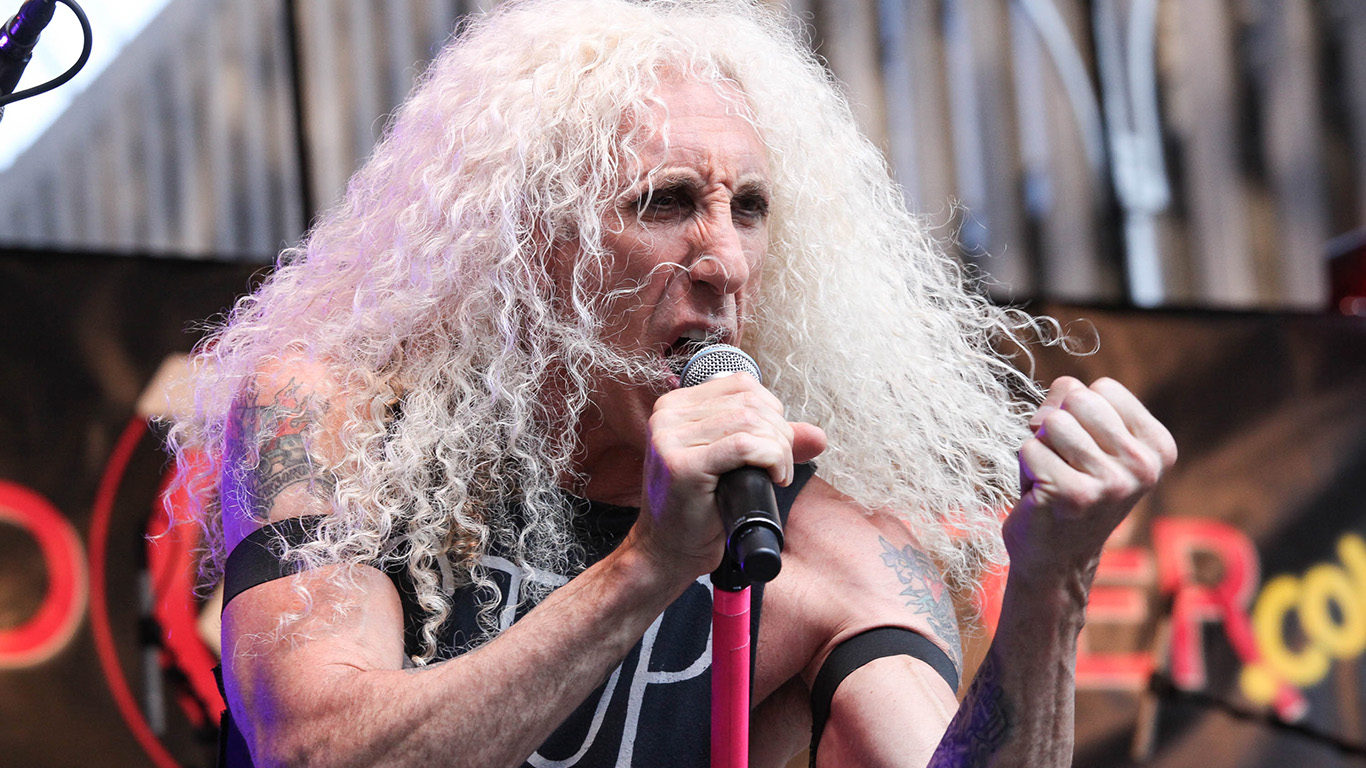
34. Twisted Sister
> Song: We’re Not Gonna Take It
> Politician: Paul Ryan, Donald Trump
> Outcome:
In response to a harsh statement from Twisted Sister frontman Dee Snider over Paul Ryan’s one-time use of their 1984 hit, the campaign told Politico, “We’re Not Gonna Play It anymore.”
Snider achieved similar results by quietly asking his reported friend Donald Trump to abstain from playing the song at rallies.
[in-text-ad-2]
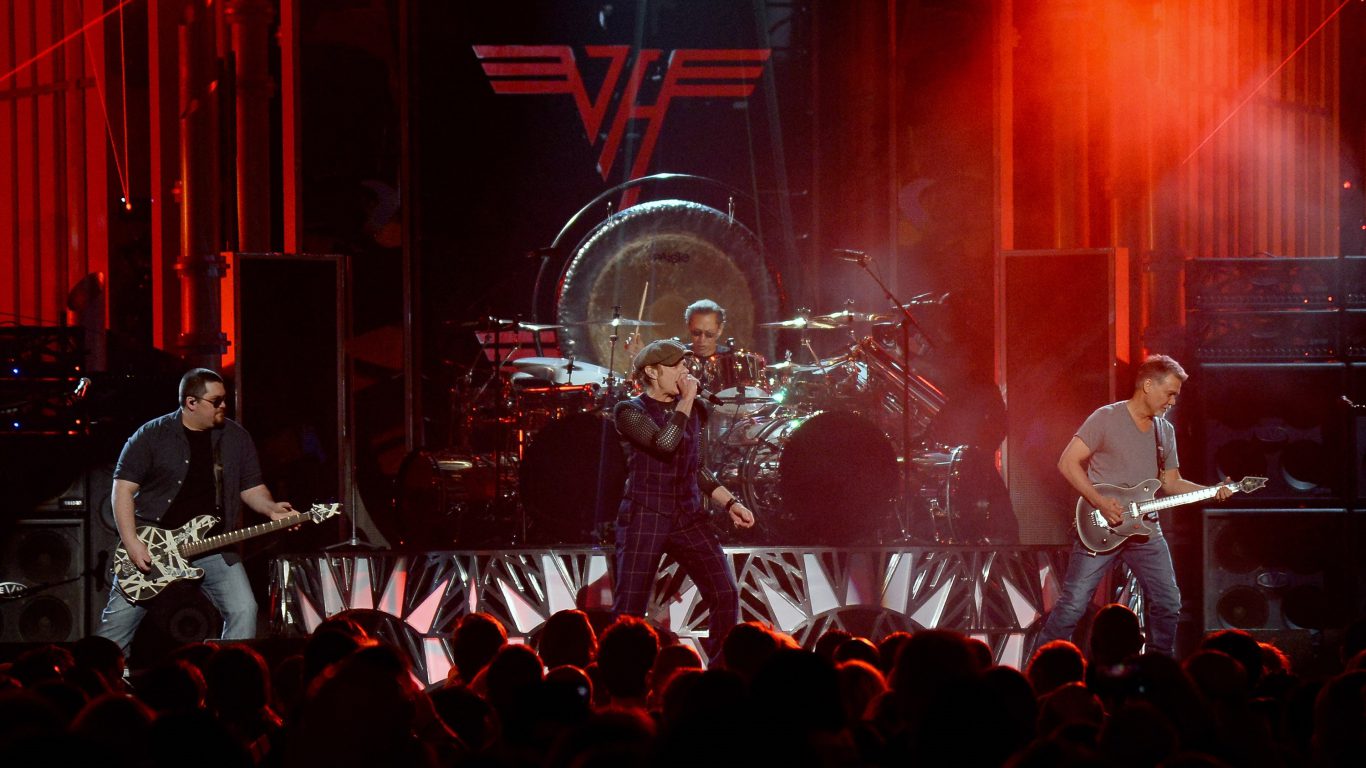
35. Van Halen
> Song: Right Now
> Politician: John McCain
> Outcome:
While singer Sammy Hagar said he was honored a presidential candidate used his words, bandmates Eddie and Alex Van Halen issued a statement clarifying that they had not given permission for McCain to use the song. McCain continued using the song regardless.
Retirement can be daunting, but it doesn’t need to be.
Imagine having an expert in your corner to help you with your financial goals. Someone to help you determine if you’re ahead, behind, or right on track. With SmartAsset, that’s not just a dream—it’s reality. This free tool connects you with pre-screened financial advisors who work in your best interests. It’s quick, it’s easy, so take the leap today and start planning smarter!
Don’t waste another minute; get started right here and help your retirement dreams become a retirement reality.
Thank you for reading! Have some feedback for us?
Contact the 24/7 Wall St. editorial team.